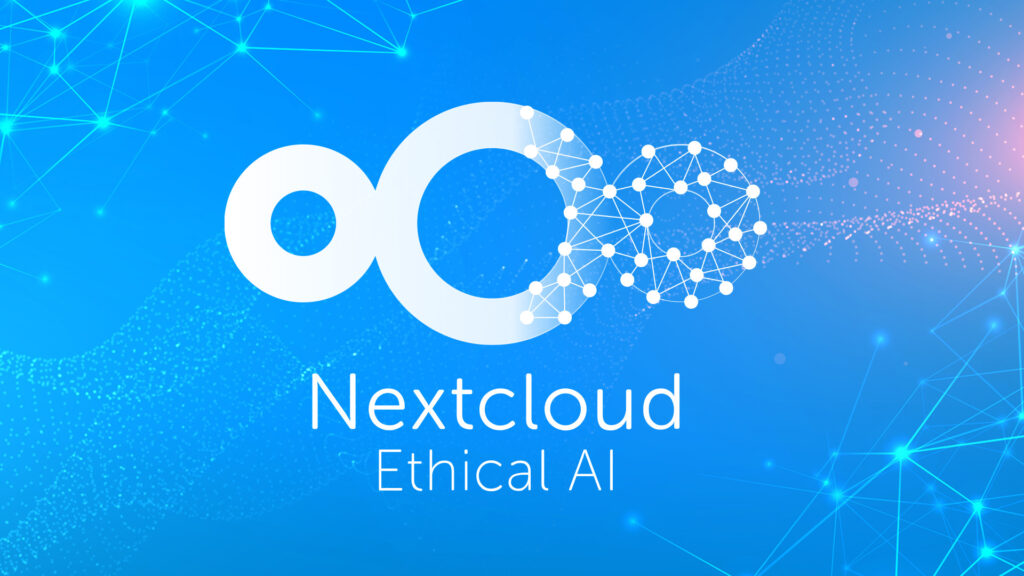Our clients across Singapore consistently raise the same concern during infrastructure planning sessions: “How do we ensure our data deployment complies with Singapore’s regulations while maintaining operational efficiency?” This question has become increasingly urgent as organizations accelerate their digital transformation initiatives and AI adoption strategies.
This article provides an overview of Singapore’s data protection landscape, examines the key challenges organizations face in achieving compliance, and explores how solutions like Nextcloud can address these requirements while maintaining operational flexibility.

Singapore’s data protection environment is rapidly evolving, with significant implications for enterprise technology decisions. The Personal Data Protection Act (PDPA) establishes comprehensive frameworks that organizations must navigate carefully.
What Makes Singapore’s Data Protection Unique?
Singapore’s data protection landscape stands out for several compelling reasons:
1. Balanced Regulatory Approach
- The PDPA strikes a careful balance between protecting individual privacy and enabling business innovation
- Unlike some rigid frameworks, Singapore’s approach allows for business flexibility while maintaining strong protection standards
2. AI-Forward Governance
- Singapore is pioneering AI-specific data protection guidelines, addressing how personal data should be handled in AI systems
- The framework includes provisions for legitimate interests exceptions when using personal data for AI development
3. Escalating Penalties
- A 2024 survey by Sia Partners indicates that 80% of respondents identified data localization and cross-border data transfer requirements as significant challenges
- Under Singapore’s enhanced PDPA penalties effective February 2021, organizations can face fines up to S$1 million or 10% of annual turnover (whichever is higher) for data protection violations
Data Sovereignty in Practice
Data sovereignty refers to the principle that data is subject to the laws and governance structures of the nation where it resides. In Singapore, while there isn’t a dedicated data sovereignty law, the PDPA establishes comprehensive data protection obligations that effectively govern data sovereignty.
Key Requirements Under Singapore’s Framework
1. Cross-border Transfer Compliance
- Organizations must ensure personal data transferred outside Singapore maintains protection standards comparable to the PDPA
- Cloud storage arrangements require careful consideration of where data resides and how it’s processed
2. Risk Assessment Obligations
- Mandatory evaluation of data protection standards in recipient countries
- Organizations must assess whether destination countries provide “comparable standard of protection”
3. Consent and Safeguard Implementation
- Clear user consent required for international transfers
- Technical and organizational safeguards must be implemented
Data Governance Requirements
mindmap
root((PDPA Core Obligations))
Consent
Explicit consent required
Purpose must be clear
Withdrawal mechanisms
Purpose Limitation
Specific purposes only
Reasonable person test
No secondary usage
Protection
Technical safeguards
Organizational measures
Breach notification
Accountability
DPO designation
Written policies
Audit capabilities
Transfer Limitations
Cross-border restrictions
Adequacy assessments
Consent mechanisms
The PDPA framework establishes comprehensive data governance obligations:
Core Data Protection Obligations:
- Consent Obligation: Obtaining explicit consent before collecting, using, or disclosing personal data
- Purpose Limitation: Ensuring data usage aligns with stated purposes that reasonable individuals would consider appropriate
- Protection Obligation: Implementing reasonable security arrangements to safeguard personal data
- Accountability Obligation: Maintaining written policies and designating Data Protection Officers (DPOs)
AI-Specific Governance Considerations
Singapore’s Model AI Governance Framework provides additional guidance for AI deployments, emphasizing:
- Transparency and Explainability: Organizations must be transparent about AI system usage
- Legitimate Interests Exception: New guidelines allow processing personal data for AI under specific circumstances
- Accountability Frameworks: Enhanced governance measures for AI system development and deployment
Challenge Analysis: Current Approach Limitations
Organizations typically face several critical challenges when attempting to balance compliance with operational requirements:
- Multi-jurisdictional Cloud Complexity - Traditional cloud providers often store and process data across multiple countries, creating compliance gaps under PDPA cross-border transfer requirements
- Limited Visibility and Control - SaaS solutions frequently provide insufficient transparency about data handling practices, making PDPA compliance verification impossible
- Audit Trail Inadequacy - Many collaboration platforms lack the detailed logging required for PDPA accountability demonstrations
- AI Governance Gaps - Existing solutions often fail to address Singapore’s AI Verify framework requirements for responsible AI deployment
- Vendor Lock-in Risks - Proprietary solutions create dependencies that may conflict with long-term sovereignty objectives
The Business Impact of Non-Compliance
Recent enforcement trends show Singapore’s commitment to data protection:
- Financial penalties reaching significant percentages of annual revenue
- Reputational damage affecting customer trust and business relationships
- Operational disruptions from regulatory investigations
- Competitive disadvantage in privacy-conscious markets
Solution Framework: Sovereign Collaboration with Nextcloud

Nextcloud Enterprise provides a comprehensive solution that addresses Singapore’s data sovereignty requirements while delivering advanced collaboration capabilities. Here’s how our implementation framework ensures compliance:
graph TD
A[Nextcloud Enterprise] --> B[Complete Data Residency Control]
A --> C[Open Source Transparency]
A --> D[PDPA-Compliant by Design]
B --> E[Singapore Data Centers]
B --> F[On-Premise Options]
C --> G[Full Code Visibility]
C --> H[Security Auditing]
D --> I[Consent Management]
D --> J[Purpose Limitation Tools]
D --> K[Audit Logging]
E --> L[Regulatory Compliance]
F --> L
G --> L
H --> L
I --> L
J --> L
K --> L
style A fill:#4A90E2
style L fill:#90EE90
Core Sovereignty Benefits
- Complete Data Residency Control - Deploy within Singapore data centers or on-premise infrastructure
- Open Source Transparency - Full codebase visibility enabling thorough security and compliance auditing
- No Vendor Lock-in - Maintain full control over data and infrastructure decisions
- PDPA-Compliant by Design - Built-in features supporting consent management and purpose limitation
- Data Loss Prevention (DLP) - capabilities preventing unauthorized data exposure
- Comprehensive Audit Logging - Meeting PDPA accountability requirements
Compliance Features Mapping
| PDPA Requirement | Nextcloud Solution |
|---|---|
| Data Residency | Singapore-based deployment options |
| Consent Management | Granular permission controls |
| Purpose Limitation | Configurable data usage policies |
| Access Controls | Role-based access management |
| Audit Requirements | Comprehensive logging and reporting |
| Breach Detection | Real-time monitoring and alerts |
Business Value Beyond Compliance
Implementing a sovereign collaboration platform like Nextcloud delivers measurable business value beyond regulatory compliance:
- Future-proof Architecture - Adapts to evolving regulatory requirements
- Cost Optimization - Reduced dependency on expensive international cloud services
- Innovation Catalyst - Enables confident pursuit of AI and digital transformation initiatives
- Trust Enhancement - Demonstrates commitment to data protection and privacy
The Key Insight: Turning Compliance into Competitive Advantage
Organizations that proactively address data sovereignty requirements position themselves for competitive advantage as Singapore’s digital economy continues to evolve. Rather than viewing compliance as a constraint, leading enterprises leverage sovereign solutions as enablers of innovation and growth.
Singapore’s commitment to responsible AI and data protection creates opportunities for organizations that embrace transparency and accountability in their technology choices. By implementing solutions with proper governance frameworks, businesses can confidently pursue digital transformation while exceeding regulatory expectations.
Strategic Recommendations
- Assess Current Data Flows - Map where your data resides and travels
- Evaluate Sovereignty Requirements - Understand which data must remain in Singapore
- Implement Governance Frameworks - Establish clear policies and procedures
- Choose Transparent Solutions - Prioritize open source and auditable platforms
- Plan for AI Governance - Prepare for Singapore’s evolving AI requirements
For organizations considering sovereign collaboration platforms, the focus should be on solutions that demonstrate clear compliance capabilities while providing the flexibility to adapt to Singapore’s evolving regulatory environment.
Ready to explore sovereign collaboration solutions for your organization?
References:
- Personal Data Protection Act (PDPA) - PDPC Singapore
- Singapore Personal Data Protection Act 2012 - Secure Privacy
- Singapore releases new guidelines on the use of personal data in AI systems - Data Protection Report
- Data Protection Obligations - PDPC Singapore
- Storing Personal Data in the Cloud - Singapore Legal Advice
- PDPA Singapore Compliance - Google Cloud
